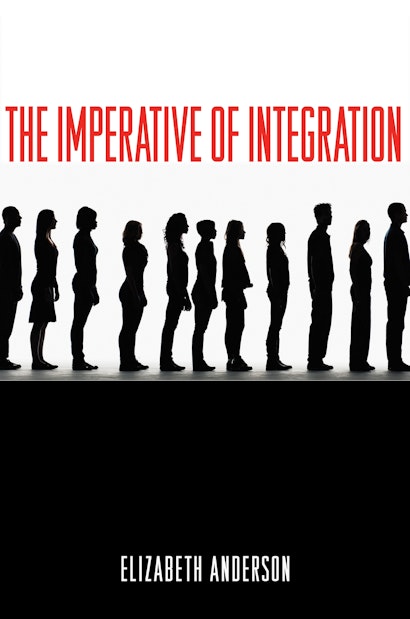More than forty years have passed since Congress, in response to the Civil Rights Movement, enacted sweeping antidiscrimination laws in the Civil Rights Act of 1964, the Voting Rights Act of 1965, and the Fair Housing Act of 1968. As a signal achievement of that legacy, in 2008, Americans elected their first African American president. Some would argue that we have finally arrived at a postracial America, but The Imperative of Integration indicates otherwise. Elizabeth Anderson demonstrates that, despite progress toward racial equality, African Americans remain disadvantaged on virtually all measures of well-being. Segregation remains a key cause of these problems, and Anderson skillfully shows why racial integration is needed to address these issues. Weaving together extensive social science findings—in economics, sociology, and psychology—with political theory, this book provides a compelling argument for reviving the ideal of racial integration to overcome injustice and inequality, and to build a better democracy.
Considering the effects of segregation and integration across multiple social arenas, Anderson exposes the deficiencies of racial views on both the right and the left. She reveals the limitations of conservative explanations for black disadvantage in terms of cultural pathology within the black community and explains why color blindness is morally misguided. Multicultural celebrations of group differences are also not enough to solve our racial problems. Anderson provides a distinctive rationale for affirmative action as a tool for promoting integration, and explores how integration can be practiced beyond affirmative action.
Offering an expansive model for practicing political philosophy in close collaboration with the social sciences, this book is a trenchant examination of how racial integration can lead to a more robust and responsive democracy.
Awards and Recognition
- Winner of the 2011 Joseph B. Gittler Award, The American Philosophical Association
- One of Choice's Significant University Press Titles for Undergraduates for 2010-2011
"[A] real tour de force of philosophical argumentation utilizing social science data."—Brian Leiter, Leiter Reports blog
"This book is an impressive addition to the growing literature in so-called 'non-ideal' political theory, which as Anderson herself notes, begins 'from a diagnosis of injustices in our actual world, rather than from a picture of an ideal world.'"—Andrew Peirce, Philosophy in Review
"There are social, academic and economic benefits to integration—the evidence for which is so powerfully represented in Elizabeth Andreson's award-winning book, The Imperative of Integration."—Jonathan Jansen, The Times
"This book is beautifully and clearly argued at the highest philosophical level and, at the same time, attentive to social and historical realities. It offers a compelling vision of an ideal of integration that has largely been lost to view. Whether or not you agree with her, Elizabeth Anderson has staked out a position that all serious thinking about American race relations must now contend with."—Kwame Anthony Appiah, author of The Ethics of Identity
"The Imperative of Integration accomplishes two important things: It demonstrates—using rigorous social scientific analysis—that racial segregation is the root cause of the continuing social disadvantage of African Americans. And it argues persuasively—using subtle philosophical reasoning—that in light of American history, a concerted effort to integrate our schools, neighborhoods, and workplaces is the only path forward consistent with a commitment to social justice. Serious students of contemporary American society will want to read this book."—Glenn Loury, Brown University
"In The Imperative of Integration, Elizabeth Anderson expertly blends social science research, moral philosophy, and political theory to make a lucid, compelling, and impassioned case for the desegregation of American society. Decades after the passage of landmark civil rights legislation, American neighborhoods and schools remain highly segregated by race. This clear moral statement of the urgent need for integration is long overdue and should be read carefully by all Americans."—Douglas S. Massey, coauthor of American Apartheid: Segregation and the Making of the Underclass
"The Imperative of Integration is an unusually rich, multidimensional, and multileveled book that raises the bar dramatically for any future work on racial justice. Scholars in a wide range of fields will profit from this book's lucid narrative and argument, as well as its impressive interdisciplinary scope."—Charles W. Mills, Northwestern University
"There is no other comprehensive defense of racial integration remotely like this one in terms of scope, erudition, clarity, and moral sophistication. The discussions of discrimination, stereotyping, and stigma are the best I have seen anywhere, and the book pulls data from an amazing range of social science disciplines—political science, sociology, social psychology, and economics. This book is truly exceptional."—Lawrence Blum, University of Massachusetts, Boston


